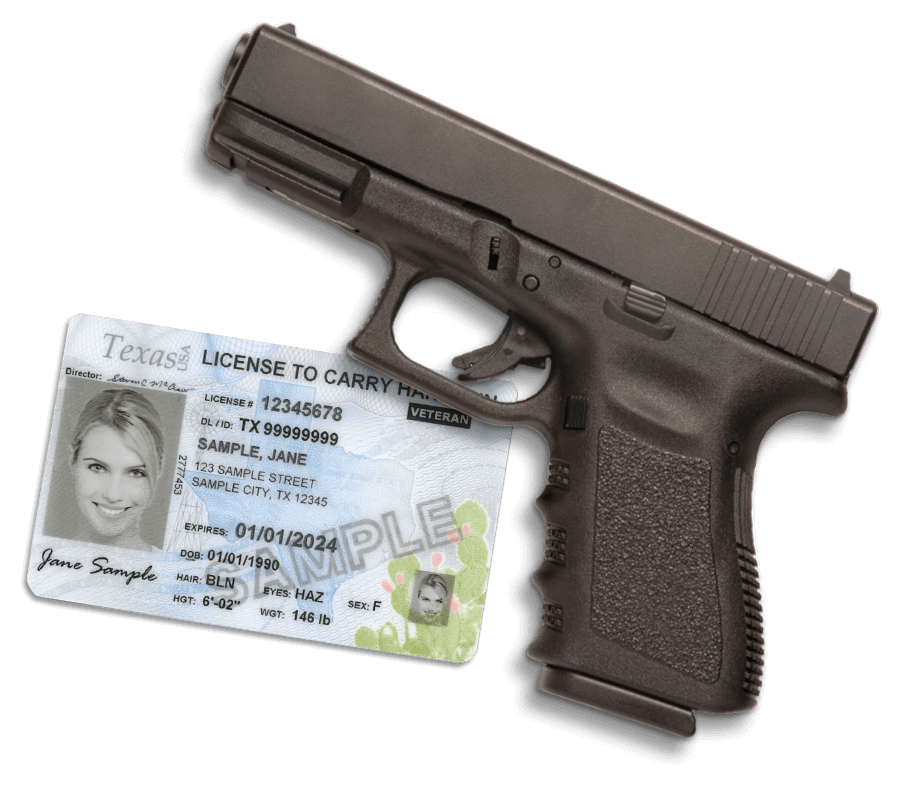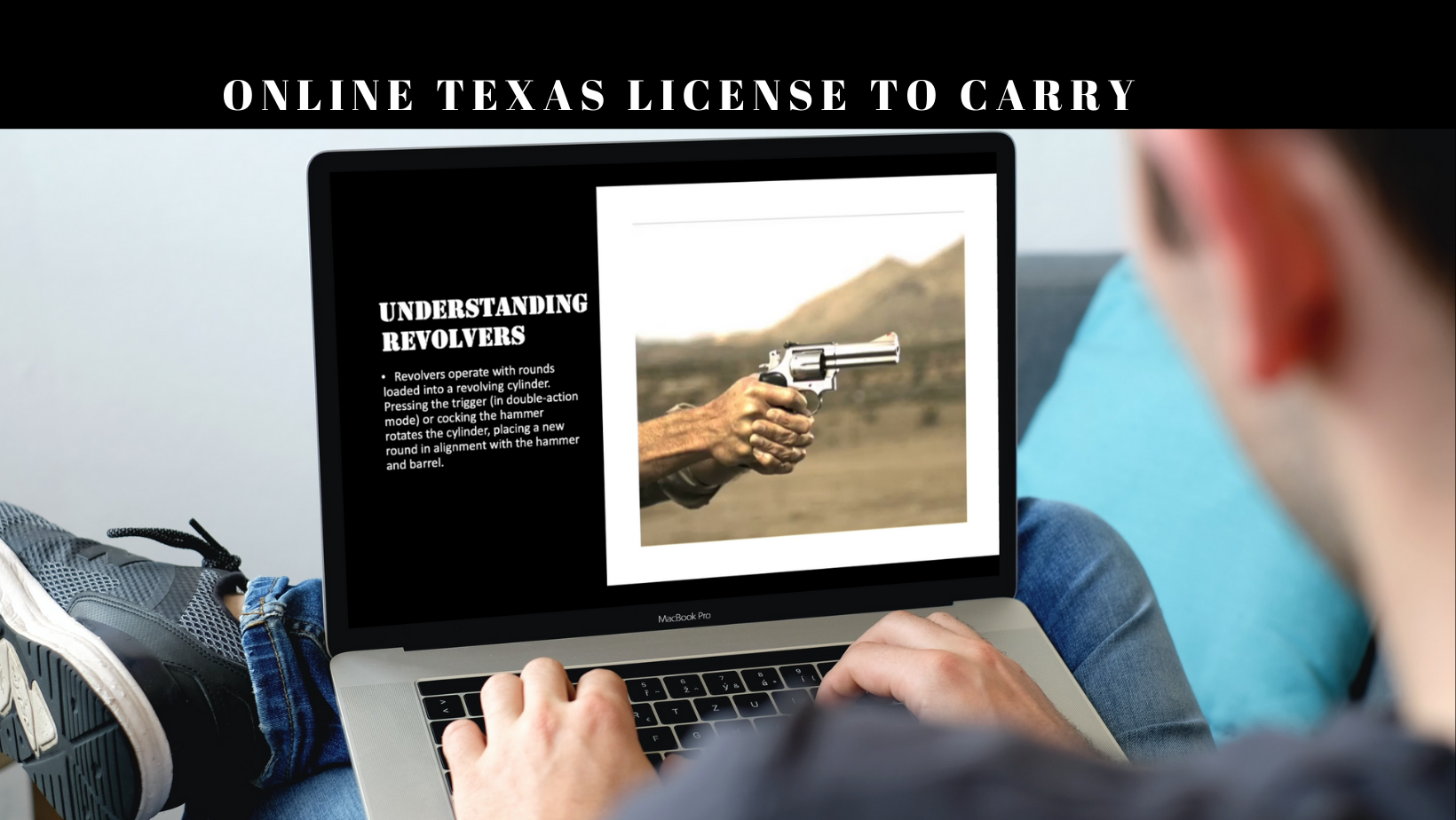Comprehensive Guide To Texas License To Carry: Everything You Need To Know
Obtaining a Texas License to Carry (LTC) is a significant step for individuals who wish to legally carry a handgun in the state. The process involves meeting specific requirements, undergoing training, and adhering to legal guidelines. This guide provides an in-depth exploration of everything you need to know about the Texas LTC, ensuring you are fully informed before proceeding.
Carrying a firearm in Texas requires careful consideration and compliance with state laws. As one of the most gun-friendly states in the U.S., Texas has established a structured framework for residents to obtain their License to Carry. This article aims to simplify the process, offering clear and actionable advice for those interested in securing their LTC.
Whether you're a first-time applicant or a seasoned gun owner, understanding the nuances of the Texas License to Carry is essential. This guide will walk you through the application process, training requirements, and legal considerations, ensuring you are well-prepared every step of the way.
Read also:Kim Junki Net Worth
Table of Contents:
- What is Texas License to Carry?
- Eligibility Requirements
- Application Process
- Training Requirements
- Fees and Costs
- Renewal Process
- Legal Considerations
- Benefits of Texas LTC
- Common Mistakes to Avoid
- Frequently Asked Questions
What is Texas License to Carry?
A Texas License to Carry (LTC) permits individuals to legally carry a handgun in the state. This license allows holders to carry either openly or concealed, depending on the specific circumstances and locations. The LTC is regulated by the Texas Department of Public Safety (DPS) and is subject to strict application and renewal processes.
Types of Carry Permitted
Under the Texas LTC, individuals can carry handguns in two ways:
- Concealed Carry: Carrying a handgun hidden from public view.
- Open Carry: Carrying a handgun openly, visible to the public, in certain circumstances.
Why is the LTC Important?
Having a Texas LTC not only grants the legal right to carry a handgun but also ensures that the carrier is trained and knowledgeable about gun safety and responsibility. It is an important step for responsible gun ownership and personal protection.
Eligibility Requirements
To qualify for a Texas License to Carry, applicants must meet specific eligibility criteria. These requirements are designed to ensure that only responsible and qualified individuals are granted the privilege of carrying a handgun.
Age Requirement
Applicants must be at least 21 years old to apply for a Texas LTC. However, active or honorably discharged members of the military may apply at the age of 18.
Read also:Gary Desorbo The Unsung Hero Of Modern Entertainment
Residency Requirement
Applicants must be residents of Texas or U.S. citizens residing outside the state. Proof of residency or citizenship must be provided during the application process.
Other Eligibility Criteria
- Must not have been convicted of a felony.
- Must not have been adjudicated mentally ill.
- Must not have been dishonorably discharged from the military.
- Must not be addicted to drugs or alcohol.
Application Process
Applying for a Texas License to Carry involves several steps. From gathering necessary documents to submitting the application, each stage is crucial for a successful outcome.
Gathering Required Documents
Before submitting your application, ensure you have the following documents ready:
- Proof of identity and residency.
- Completed application form.
- Fingerprint cards.
- Proof of training completion.
Submitting the Application
Applications can be submitted online through the Texas DPS website or in person at a local DPS office. Ensure all information is accurate and complete to avoid delays in processing.
Training Requirements
One of the most critical components of obtaining a Texas LTC is completing the required training. This training ensures that applicants are knowledgeable about gun safety and responsible firearm handling.
Types of Training
Applicants must complete a state-approved handgun safety course. This course typically includes:
- Classroom instruction on firearm laws and safety.
- Practical shooting exercises to demonstrate proficiency.
Choosing a Training Provider
It is essential to select a certified training provider approved by the Texas DPS. A list of approved instructors can be found on the DPS website.
Fees and Costs
Applying for a Texas LTC involves certain fees and costs. Understanding these expenses upfront can help applicants budget accordingly.
Application Fee
The standard application fee for a Texas LTC is $140. However, active or honorably discharged military members may qualify for a reduced fee of $70.
Additional Costs
- Training course fees, which vary by provider.
- Fingerprinting fees, typically around $50.
Renewal Process
A Texas License to Carry is valid for five years. Renewing the license involves a simplified process compared to the initial application.
Renewal Requirements
- Complete a renewal application form.
- Pay the renewal fee, which is $70 for most applicants.
- Provide proof of continued residency or citizenship.
Renewal Timeline
It is recommended to start the renewal process at least 90 days before the expiration date to avoid lapses in coverage.
Legal Considerations
Carrying a handgun in Texas comes with certain legal responsibilities. Understanding these considerations is vital for responsible gun ownership.
Locations Where Carry is Prohibited
There are specific locations where carrying a handgun, even with a LTC, is prohibited. These include:
- Schools and school zones.
- Government buildings.
- Establishments where alcohol is the primary product sold.
Carry Laws in Other States
While Texas has reciprocity agreements with several states, it is essential to check the specific carry laws of other states when traveling with a firearm.
Benefits of Texas LTC
Obtaining a Texas License to Carry offers several benefits beyond the legal right to carry a handgun.
Enhanced Personal Protection
Having a LTC allows individuals to protect themselves and their loved ones more effectively in potentially dangerous situations.
Access to Concealed Carry
With a LTC, individuals can carry their handguns concealed, providing a discreet method of self-defense.
Common Mistakes to Avoid
While the LTC application process is straightforward, certain mistakes can delay or even disqualify an application.
Ignoring Eligibility Criteria
Applicants must carefully review and meet all eligibility requirements before applying. Failing to do so can result in application rejection.
Skipping Training
Completing the required training is not optional. Skipping or rushing through the training process can lead to insufficient knowledge and skills.
Frequently Asked Questions
Can I Carry Without a LTC in Texas?
No, carrying a handgun in Texas without a valid LTC is illegal and can result in severe penalties.
How Long Does the Application Process Take?
The processing time for a Texas LTC application typically takes 90 to 120 days, depending on the workload at the DPS.
What Happens if My LTC Expires?
If your LTC expires, you must renew it promptly. Carrying a firearm without a valid license can result in legal consequences.
Conclusion
Obtaining a Texas License to Carry is a responsible decision that requires careful consideration and adherence to legal requirements. By following the steps outlined in this guide, you can successfully navigate the application process and enjoy the benefits of lawful handgun carry.
We encourage readers to share their experiences or ask questions in the comments section below. For more information on gun laws and safety, explore our other articles on the website. Remember, responsible gun ownership starts with knowledge and training.


